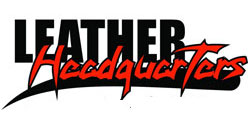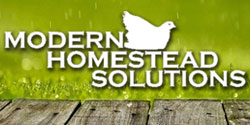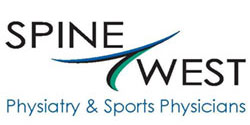New recycling bins, Lighthouse Park water mains, Mobility Institute wrap-up meeting
City and Advanced Disposal partner to boost both recyclers and recycled material; watch for additional bin to be delivered next week.
[Note: All residential customers of the city’s solid waste services will receive an additional bin for the collection of recyclable materials starting on Monday. With the bins come a list of all the materials that may be recycled. Your help in alerting the community to this new bin and its purpose is most appreciated. All of this information, including a copy of the flyer that will accompany the new bins, is available at www.StAugRecycle.info.
With the bins come a list of all the materials that may be recycled. Your help in alerting the community to this new bin and its purpose is most appreciated. All of this information, including a copy of the flyer that will accompany the new bins, is available at www.StAugRecycle.info.
Chances are if you, as resident of St. Augustine, recycle you are not recycling as much material as you could. Most everyone is certain they can place newspapers, glass and cans in their recycling bin, but those are just a few of the items welcomed.
The city and its contractor, Advanced Disposal, are launching the Make St. Augustine Cleaner & Greener campaign to encourage residents to recycle and thus increase the amount of recycled material collected.
With increased recycling comes the need for increased capacity, so a second bin is being provided, free of charge, to every one of the city’s more than 4,600 customers. Bins currently used throughout the city are 18-gallon capacity, as will be the additional one.
The new bins will be delivered the week of September 24–28.
What’s not accepted for recycling
With such a wide variety of materials that are accepted for recycling, it is easier to remember the few materials that are not:
• Plastic bags
• Milk or juice cardboard cartons (these are poly-coated and cannot be recycled)
• Loose shredded paper (accepted if bagged)
• Pizza boxes from restaurants
• Styrofoam
What’s is accepted for recycling
Materials that are accepted for recycling and may be placed in the recycling bins are:
Newspapers and their inserts (on rainy days, please hold until next collection)
• Junk mail
• Corrugated cardboard (flattened out and cut in pieces 2′ by 3′ or smaller)
• Brown or gray fiber packages (soda cartons, cereal boxes, dry food packages)
• Metal containers and cans, including aluminum
• Plastics #1 and #2
• Plastic food, beverage, detergent bottles and jugs labeled #1 – #7
• Pill bottles
• Water bottles
• Glass, including jars and bottles whether clear, brown or green
• Magazines
• Catalogs
• Telephone books
• Brown paper bags (can also be used to hold excess recyclables)
• Office and copy paper
• Shredded paper (if bagged)
• File folders
Recycling has impact
Many times it is too easy to toss a recyclable into the trash instead of the recycling bin thinking one small amount won’t make a difference, but it does:
• Two weeks of daily newspapers equals one full-grown tree.
• Newspaper and other paper products are recycled into writing paper, cereal boxes, paper towels, tissue paper, cardboard and cereal boxes.
• In one year a person uses approximately one 100-foot-tall Douglas fir tree in paper and wood products.
• Recycling 1-ton of paper saves 17 mature trees, 7,000 gallons of water, 3 cubic yards of landfill space, 2 barrels of oil, and 4,100 kilowatt-hours of electricity, enough energy to power the average home for five months.
• The junk mail receive in one day could produce enough energy to heat 250,000 homes.
• Plastic soda bottles are recycled into fiberfill, fleece wear, luggage, picnic tables, benches, carpet, buckets and pipe with just 40 recycled plastic soda bottles making enough fiberfill to stuff a sleeping bag.
Collection guidelines
Even with the wide variety of material accepted for recycling, there is no requirement to separate materials; all items can go in either bin and bins should be curbside by 7:00am the collection day. For a map of St. Augustine noting collection areas for each day, visit www.StAugRecycle.info.
The only two holidays on which there is no collection is Thanksgiving and Christmas.
When a holiday coincides with a scheduled collection day, notice is provided regarding any alternate collection days via the local newspaper.
To contact Advanced Disposal, call 904.827.1005 and to contact the Public Works Department, call 904.825.1040
· Lighthouse Park area next on the list for new water mains
Public meeting set for October 1 to outline
project aimed at eliminating “red water”
A long awaited water main replacement project will finally get underway in a portion of Lighthouse Park starting in early November. The project, set to be completed before March 1, will replace aging, cast iron pipes, often the source of “red water,” because of the corrosive nature of the pipes.
A public meeting regarding the project will be held on Monday, October 1 starting at 6:00pm in The Alcazar Room, City Hall, 75 King Street. In particular, residents and businesses in the affected area are invited to attend so as to learn details of the project from staff and representatives of the contractor and to be able to ask questions.
Pipes to be replaced run along five streets, Lighthouse Ave., Magnolia Dr., White St., Carver St., and Red Cox Dr., and yet at no time will these streets be closed to traffic because of a hybrid technology incorporating both directional drilling and “pipe bursting,” where a new pipe is literally forced into the space of the old pipe. These methods will nearly eliminate “open cuts” in the street.
While access to and from property will not be an issue for residents and businesses, there will be sporadic periods of water outages, but those too will be at a minimum. Water will have to be shut-off for approximately 45 minutes when old water meters are replaced with new ones. In each of those instances, property owners will be notified of the shut off.
This project is funded through the 2011 Capital Improvements Bond. In addition to the Lighthouse project, water main replacements are currently underway in Lincolnville and will start after the first of the year work on Palmer St. and in areas in north city including Joiner St., Water St. and others. Projects funded by the bond that have been completed are the replacement of two pump stations, Phase I of the Riberia St. Reconstruction project, a new force main across the San Sebastian River, and water mains in Davis Shores, and along N. Park Ave. All total, the investment in water main replacement this fiscal year is approximately $1.2 million dollars.
For more information or to have questions addresses, contact Marcus Pinson, Public Works Department, at 904.825.1040.
Also, this weekend may offer the opportunity to re-cap and summarize the week-long work of the St. Augustine Mobility Institute for your audience, and so you are encouraged to attend tomorrow’s (Friday, September 21) Wrap-up Meeting starting at 2:00pm in The Alcazar Room (City Hall, 75 King Street).
Lastly, the agenda and backup material for Monday’s City Commission meeting is now available on-line by clicking here.
Source: City of St. Augustine






















Leave a Reply
You must be logged in to post a comment.